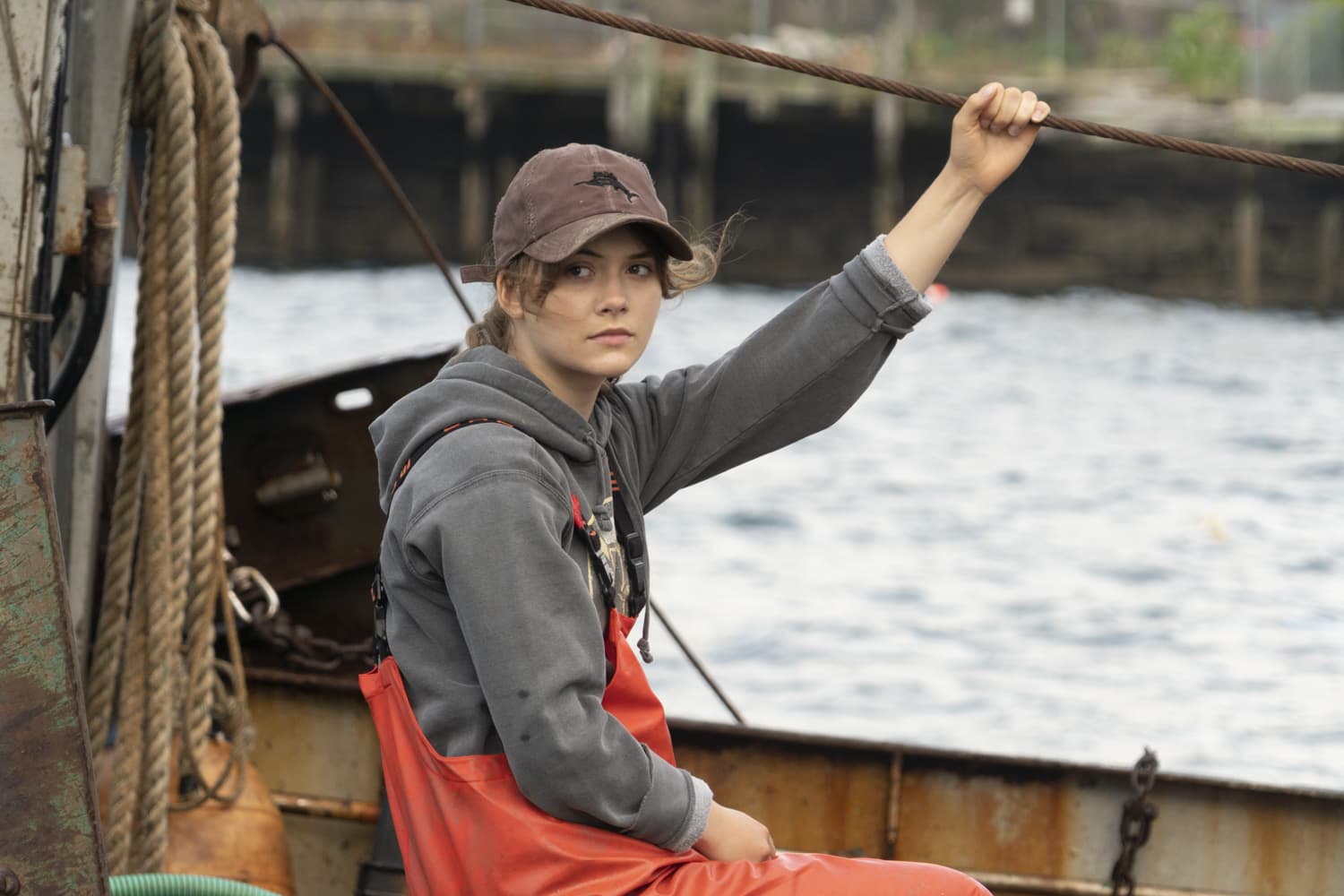Advertisement
Gloucester-Set Film 'CODA' Debuts At Sundance

A young woman slinging nets on a fishing boat sings loudly into the wind. The two men on board, also busy with gear, don’t seem to notice or mind. With a sharp eye for detail and a huge heart, the opening scene of the new movie “CODA” lays the groundwork for a slightly torqued and emotionally resonant coming of age story.
“CODA” stands for “child of deaf adults” and centers on Ruby Rossi (Emilia Jones), a high school senior torn between helping her tight-knit family run its fishing business or following her passion to sing. Shot entirely in Gloucester over the summer of 2019, it’s the second feature film written and directed by Cambridge native Sian Heder. It debuts as part of the highly coveted U.S. Dramatic Competition in the mostly virtual Sundance Film Festival on Jan. 28.
By Zoom before the premiere, Heder acknowledges “a little bit of heartbreak” over not being able to watch it in-person alongside 2,000 others in Park City’s Eccles Theater, one of the festival’s biggest venues. But since she had the chance to walk Sundance’s red carpet in 2016 with her first film, “Tallulah,” her lament is that the film’s principal talent might not have the chance “to get and receive the accolades they deserve.”
“CODA” stars Marlee Matlin and Troy Kotsur as the happily married parents to Ruby and her older brother Leo (Daniel Durant). The only hearing member of her family, Ruby grows up translating everything from restaurant orders to awkward doctor visits. The interdependent foursome shares a bawdy closeness, trading crass barbs and using Tinder as dinner table entertainment. At school, Ruby struggles with kids who don’t understand and even make fun of her situation. Yet her one escape of music confounds her family, especially her mom.
Heder adapted “CODA” from a 2014 smash hit in France, “La Famille Bélier,” a similar story set on a rural dairy farm. Having frequently visited Boston’s North Shore in summers growing up, Heder says she thought of Gloucester as a setting partially because of the drama happening in the fishing community and also for its visual appeal. “For me it has the combination of being very picturesque and quintessentially New England but also with a working-class grit to it,” she says.
In “CODA,” the Rossi family makes their living off the sea. Their creaky clapboard cottage has a yard jammed with boats, traps and nets. Heder stumbled on the house while scouting locations and knew immediately it would work for the film. She jokes that she just had to let the family living there know. She simply walked up to the door and knocked. “You’d think everyone wants to be in a movie. But you have to work your magic to get in,” she says.
Another prime location in the film — the seaside Victorian where Ruby’s zealous choir teacher Mr. V (Eugenio Derbez) lives — came by way of a family friend, a home Heder visited many times as a kid. Heder says it was surreal to turn a place with such strong childhood memories into a movie set. That includes scenes shot at Rockport’s Steel Derrick quarry, too. “I used to jump off those cliffs when I was 16,” she confesses. (Now, that’s strictly off limits.) Whether observing a fish processing plant or consulting the Gloucester Harbormaster on how to conduct a raid, Heder says, “It was really cool to learn about the town in a way I hadn’t previously.”
One high priority was securing the right type of fishing vessel (a dragger) and giving her cast a chance to learn and practice fishing skills. Heder sought guidance from both Kenneth Lonergan, director of 2016’s “Manchester by the Sea,” as well as members of the Gloucester Fishermen’s Wives Association, a nonprofit that promotes New England’s fishing industry. They led her to key consultants and a fisherman named Paul Vitale who agreed to take Heder on a 4 a.m. outing. He gradually and graciously allowed a few more to come along “and pretty soon his boat was a movie set,” says Heder.
While coastal access was key to the film’s fishing storyline, proximity to Boston helped Heder shape the portrayal of the deaf experience. Because three characters are played by actors who are deaf, Heder needed American Sign Language interpreters on set. (She also learned some ASL herself as evidenced by her Sundance video introduction.) “It was very helpful that Boston has a strong deaf community,” she says. The interpreters she found as a result “were a key part to how we worked.”
In many ways, the Rossi family creates their own little island, both by choice and circumstance. While reflecting on the influence of the pandemic, Heder says she found herself doing the same thing through 2020. “Since March, I haven’t had a babysitter,” she says, and like many families in a similar boat, “we formed our own little island with our own languages and culture.” With its unabashed familial love and raw humor, she thinks “CODA” “is the kind of story people need right now.”
At press time, all scheduled virtual screenings of “CODA” at the Sundance Film Festival were sold out.

